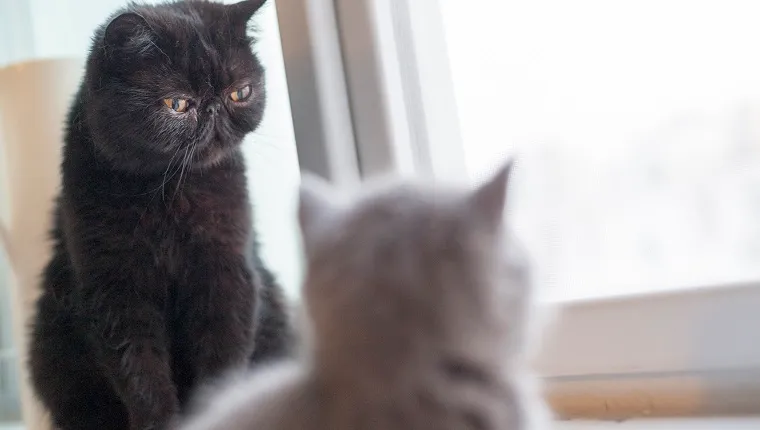Introduction
Hey there, fellow feline aficionados! Today, we’re delving into a question that’s been pondered by cat lovers for eons: Does your older cat really want a younger companion? As an animal expert with a passion for purrs and whiskers, I’m here to guide you through the ins and outs of introducing a new furball into your feline family. So grab a cup of catnip tea and let’s unravel this furry conundrum together!
Understanding Your Older Cat’s Needs
The Golden Years
First things first, let’s talk about our seasoned feline friends. As cats age, their needs and preferences evolve, much like ours do. While some older cats may relish the idea of a playful new friend, others may prefer the quiet comforts of solitude. It’s essential to consider your cat’s personality and lifestyle before making any decisions about adding a new member to the family.
Comfort and Routine
Older cats often thrive on stability and routine. They’ve likely spent years establishing their territory and routines, and the introduction of a new cat can disrupt their sense of security. Before bringing home a younger companion, it’s crucial to assess how your older cat might react to the change and whether they’re truly ready for a new feline friend.
The Benefits of Adding a Younger Companion
Rejuvenating Energy
One of the most significant benefits of introducing a younger cat into your home is the infusion of youthful energy. Kittens and younger cats can bring a playful and spirited dynamic to the household, which can be refreshing for both cats and their human companions alike. Plus, watching your older cat teach their new friend the ropes can be incredibly heartwarming.
Social Stimulation
For some older cats, the company of a younger companion can provide valuable social stimulation. Cats are social creatures by nature, and having a feline friend to groom, play with, and cuddle can enrich their lives in profound ways. It can also help stave off feelings of loneliness and boredom, particularly for cats whose human companions are away for long periods.
Considerations Before Adding a New Cat
Assessing Your Older Cat’s Personality
Before rushing out to adopt a younger cat, take the time to assess your older cat’s personality and temperament. Some cats may be more tolerant and accepting of new additions, while others may be more territorial or aloof. Consider factors such as their past interactions with other cats, their activity level, and their overall demeanor when determining whether a new companion is the right fit.
Consulting with Your Vet
Veterinarians play a crucial role in helping pet owners make informed decisions about their furry friends’ well-being. Before adding a new cat to your household, consult with your vet to ensure that your older cat is in good health and able to handle the introduction of a younger companion. They can also provide valuable advice on how to facilitate a smooth transition and minimize stress for both cats.
Introducing Your Older Cat to a New Companion
Take It Slow
When introducing a new cat to your older feline friend, patience is key. Start by keeping the cats separated initially, allowing them to become familiar with each other’s scent through scent swapping. Gradually introduce supervised interactions in neutral territory, such as a quiet room or outdoor enclosure, to prevent territorial disputes.
Monitor Interactions
Pay close attention to your cats’ behavior during the introduction process. Look for signs of stress, aggression, or discomfort, and be prepared to intervene if necessary. It’s normal for there to be some hissing and swatting initially, but if tensions escalate or one cat shows signs of distress, it may be necessary to slow down the introduction process or seek guidance from a professional behaviorist.
Conclusion
In the end, whether your older cat truly wants a younger companion depends on their individual personality, preferences, and needs. While some older cats may thrive with the addition of a playful new friend, others may prefer to enjoy their golden years in solitude. By carefully considering your cat’s unique temperament and consulting with veterinarians and animal behavior experts, you can make an informed decision that’s in the best interest of both your older cat and any potential new additions to the family.
- Best Datanyze Alternatives for 2025 - April 19, 2025
- Best Leadfeeder Alternatives for 2025 - April 18, 2025
- Best LeadScrape Alternatives for 2025 - April 18, 2025



